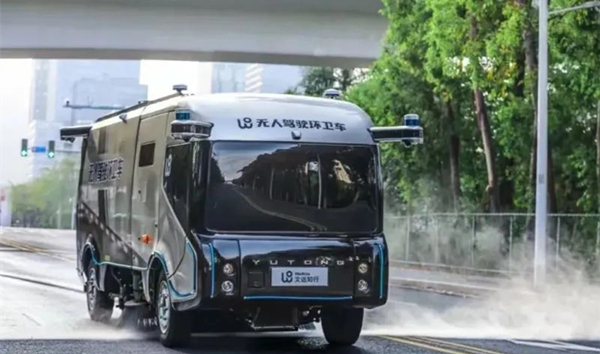Guangzhou Intl Bio Island provides driverless sanitation vehicles
On Sept 1, Guangzhou International Bio Island (GIBI) introduced driverless sanitation vehicles to drive Haizhu's digital transformation.
In response to safety issues, the project manager said that the cloud control platform has realized the core functions of remote control, real-time scheduling, line management, and status monitoring of the fully unmanned sanitation vehicles.
The daily operating hours of the fully driverless sanitation vehicle start at midnight and end at 7:00 pm. They provide continuous sanitation operation seven days a week, while boasting a pure electric driving mileage of more than 300 kilometers and a maximum speed of 40 km per hour. The test data shows that compared with the traditional sanitation operation mode, the pure electric unmanned sanitation vehicles are not only low-carbon and environmentally friendly, but also reduce manpower by 57 percent.
Since 2012, Guangzhou has been named the "National Smart City Leader" and began to explore the integration of industrialization, information technology, as well as urban development. In the past 10 years, Guangzhou has incorporated digitalization across a wide variety of sectors and services.
GIBI, formerly known as Guanzhou Island (or Dove Island), is located in the center of the Pearl River in the southeast Haizhu district. It is an elliptical island lying in a northeast-southwest direction, located to the east of the Guanzhou waterway and to the west of the Luntou waterway.

A driverless sanitation vehicle in Haizhu. [Photo/WeChat account: gzhzfb]
All rights reserved. Presented by China Daily

